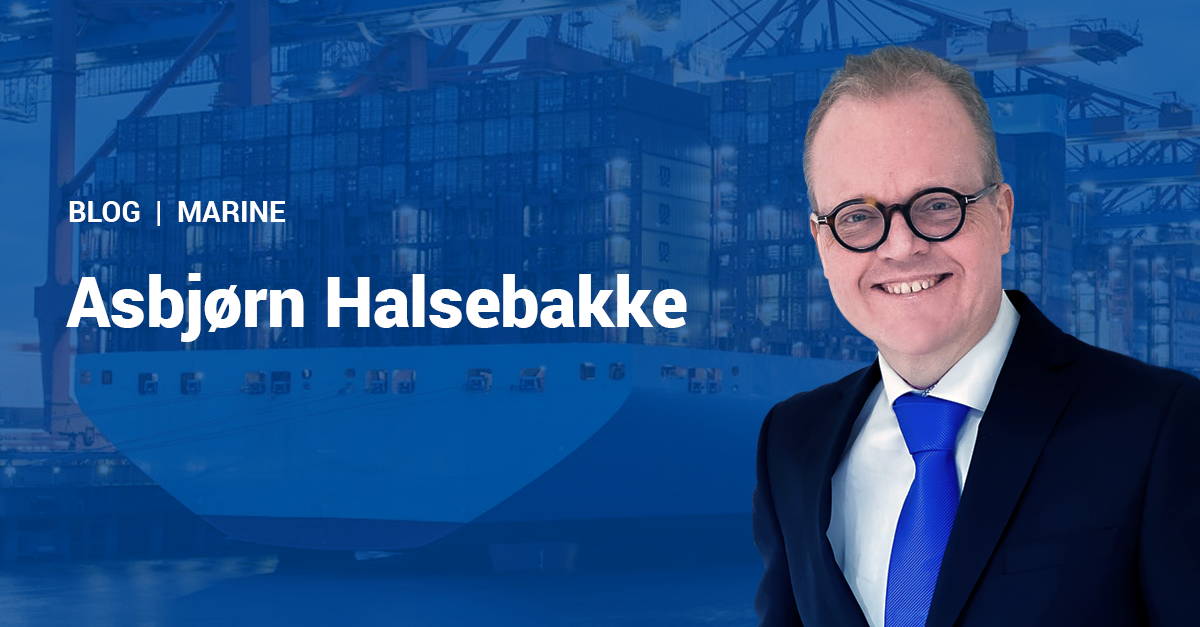Marine fuels for the future
The marine community is still debating the correct fuel for the future. The biggest challenges are the availability of green energy and its storage. The regulations are there, the technology is there, but green energy availability and how to store it – both onshore and on vessels – is still a challenge.
Space is always an issue on a vessel and must be taken into consideration when we look at the future. Ammonia and hydrogen are the fuels that have been most investigated, but there are clear drawbacks to both. Hydrogen is not that energy dense and needs a lot of space. Ammonia takes up less space but may not be appropriate for vessels with many passengers. All the known alternatives have pros and cons. Although there may be alternatives under development we have not yet seen, we need to investigate more energy-dense fuels.
Preparing despite the unknowns
Meanwhile, preparing for the as-yet-unknown future is imperative. As the best fuel has not yet been decided, vessels that are being built today will need to be rebuilt during their lifetime. How do we design for this?
Batteries can help with the new energy sources. Since new energy sources do not react as fast as traditional systems on big load steps, batteries can support these large load steps and even improve the response time compared to traditional systems. Large DC-Hubs are replacing AC switchboards. Large batteries can be very useful for ferries as well as cruise and short-distance RoRo vessels, but the electrical systems on board must be prepared for them. And vessels that are ideal for battery operation must be able to find the needed energy source at all locations and be able to cover a big surge in demand.
The Switch has products that meet existing needs and prepare for the future, as well. Large batteries are a well-developed technology, and The Switch has the DC-Hubs for them.
Combining highly efficient PM machines and DC-Hubs with their future flexibility is an option more and more of our customers are choosing.
Future-proofing new ships
Often, the challenge in building new ships is convincing owners that a more expensive vessel today will save money in the future – as well as allow for more flexibility in the future. It’s a very important point that the money spent today may be a huge savings tomorrow. But this is not always so easy to see. Even so, we see many vessels and DC-Hubs being designed today for the future possibilities of more batteries, more fuel cells and more shore charging.
The Switch has recently delivered DC-Hubs to HAF Power Solutions, a Norwegian system integrator, for their cLion projects. These are very good examples of how future vessels can be designed. From the beginning, more space was allocated for future energy sources such as more batteries, large fuel cells and other energy sources. Now, even before the vessel is completed, the owner often realizes that operations may require more batteries than was originally thought. The Switch DC-Hub is prepared for this, with space in the vessel already reserved. With our DC-Hubs, everything is already there.
Retrofitting the existing fleet
At the same time, we must retrofit the existing fleet to meet the regulations and goals agreed upon. How do we do this? The biggest challenges to retrofitting old ships are always space and money. If there isn’t space, it cannot be done. If it is too costly, why do it at all?
Sometimes, a smaller DC-Hub and a large battery may be the solution. Products from The Switch are very compact and space efficient, able to use whatever space is available. Another option is to replace one genset with batteries and a DC-Hub. Yet another is to use available deck space. We’ve already implemented all these options for existing vessels. For me, the combination of the DC-Hub, batteries, fuel-efficient engines and rotor sail is a more and more interesting concept for some vessels, especially after listening to the experiences of shipowners. This combination can help reduce energy consumption significantly.
Keep the discussion going
For a more in-depth discussion of the challenges and possible solutions for DC-Hubs, the new fuels and large batteries, join me at the Maritime Hybrid, Electric & Hydrogen Fuel Cells conference in Bergen this month, October 29–31. Read more
Let’s tackle these essential questions together!

Chief Expert, Marine Concepts
Asbjørn Halsebakke

Asbjørn Halsebakke is leading his team in engineering marine drive solutions, frequency converters and rotating machinery, which are in use today with the utmost reliability on vessels throughout the world. Before joining The Switch, Halsebakke worked for Aker Kværner Elektro AS in Norway to develop frequency drives and perform sea trials and commissioning. Halsebakke graduated from Narvik University College with a Master of Science in Electrical Engineering. He also attended the University of Bergen, where he studied elementary physics and mathematics.
